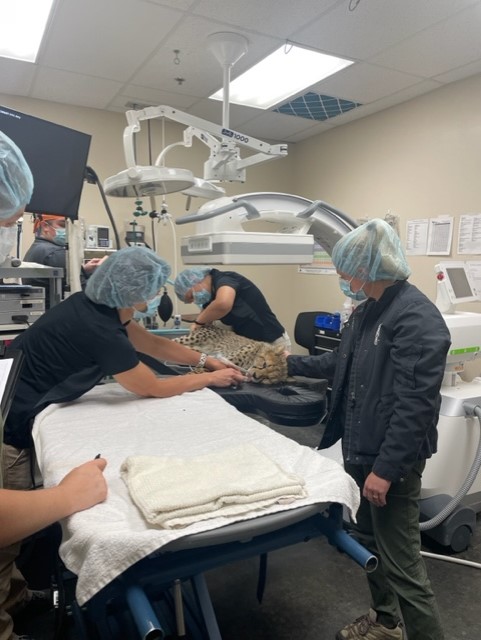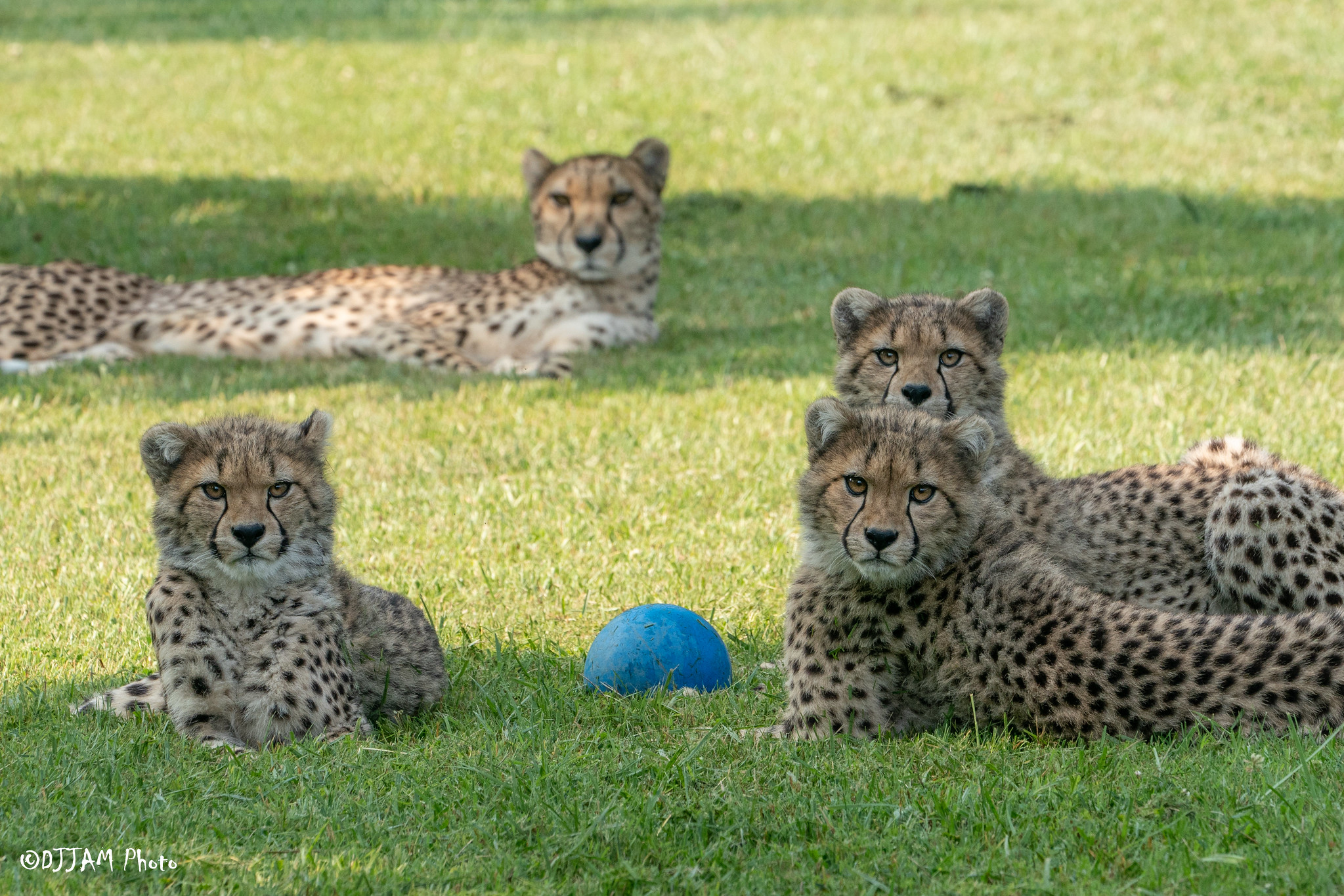MedVet and Zoo are the Purrfect Partners to Help Baby Cheetah
Did you know that Cincinnati Zoo is one of 10 facilities that are part of the Cheetah Breeding Centers Coalition? This group shares ideas about cheetah husbandry management, breeding and research. These Association of Zoos and Aquariums (AZA) accredited breeding centers, all members of the Cheetah Species Survival Plan (SSP), work together to maintain and grow a genetically diverse population of this endangered feline species in North America.
We’re proud to share that Tearza, the seven-year-old cheetah, became a first-time mom at our breeding center! The cubs, Amy, JJ and Dutch, are now 8 months old! They will live at the farm (which is not open to the public) with their mom for a couple years until they become subadults ready to tackle their own journeys in life. In the meantime, we will work with the SSP to figure out what will be best for each of them.
Keepers noticed that cheetah cub Amy started having trouble while eating. When eating too quickly (as young cheetahs do when excited and eating communally with their siblings), she would regurgitate and have mild fainting episodes, but then would recover quickly and fully and eat normally afterward. She was otherwise acting well.
We suspected there may be something wrong with her throat or chest that may be triggered when she eats too much too quickly, but an initial exam with our veterinary equipment couldn’t reveal an issue. We elected to bring her to MedVet where we could do a CT scan to look at all of the structures in her throat and chest.


Since she was already under anesthesia, we also had an endoscopy of her esophagus performed to look for subtle changes. The good news is that we did not find any major structural changes that would be potentially life-threatening or require surgery. We collected tissue biopsies of the esophagus and are still awaiting results.
In the meantime, we have been managing Amy by changing the feeding strategy and so far she’s done great! She’s not having any regurgitation or fainting spells while eating and we’ll continue to monitor her as she grows into an adult, at which time she may “grow out” of these episodes and live a completely normal life.


